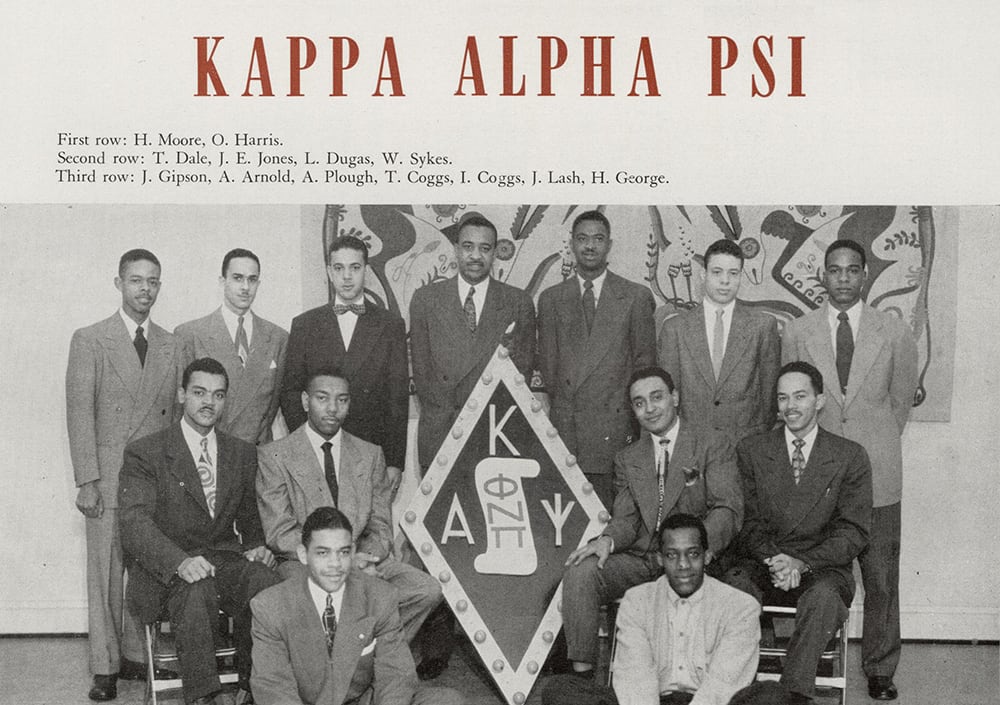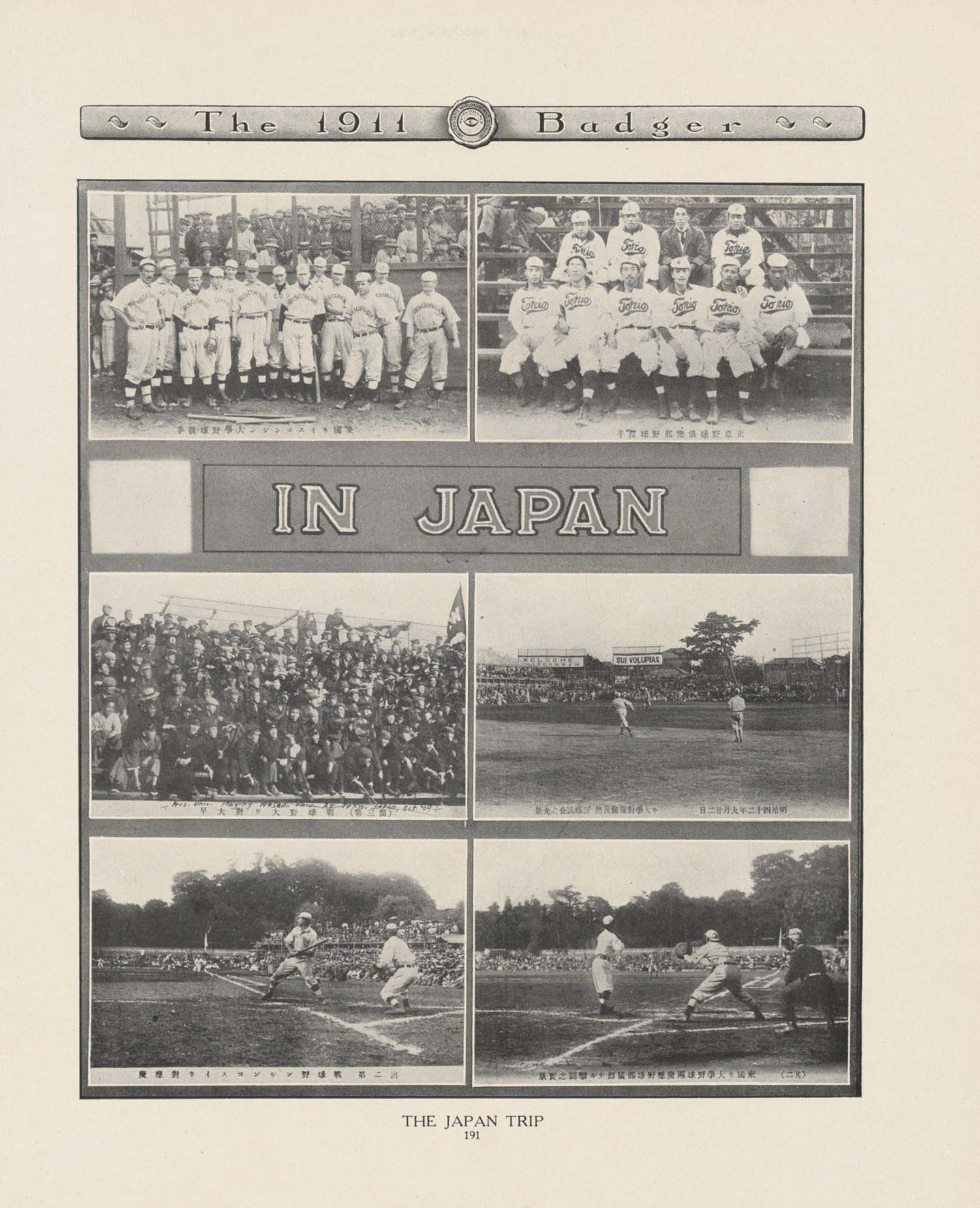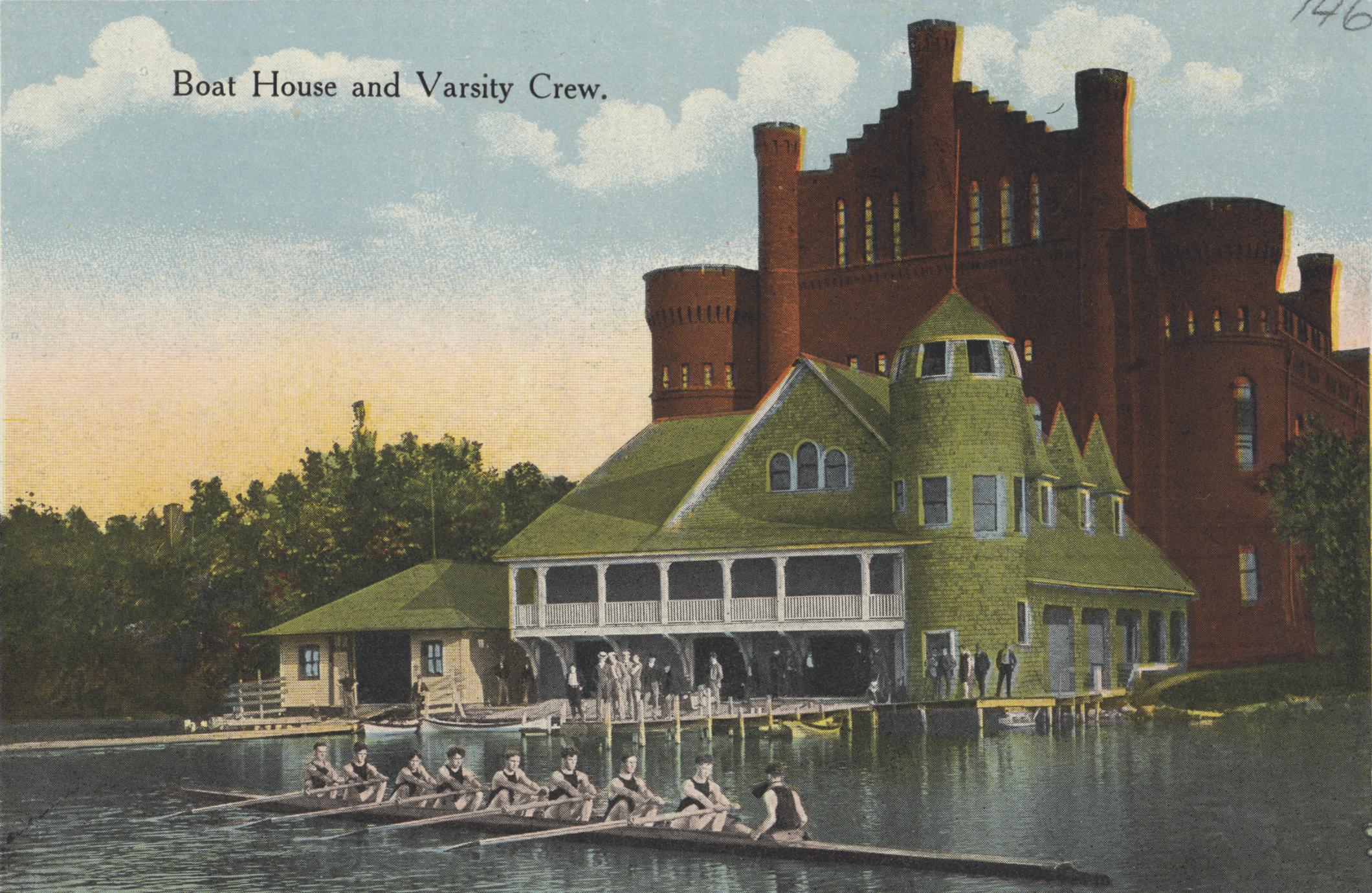Greetings from the Public History Project! May's newsletter celebrates warmer weather and the end of the semester, and includes links to project research, campus celebrations, some recreation-related archival finds, new book and documentary recommendations, and more!
The University of Wisconsin-Madison’s Public History Project is a multi-year effort to uncover and give voice to those who experienced, challenged, and overcame prejudice on campus. As always, if you have a story to share, an event you think should be researched, or a person you think has been overlooked, please email us at publichistoryproject@wisc.edu.
|
|
|
|
|
|
Earlier this month, hundreds of current and alumni members of the fraternities and sororities of the National Pan-Hellenic Council, also known as the Divine Nine, along with other members of the campus community, gathered to celebrate the opening of the Divine Nine Garden Plaza. The collection of historical markers on East Campus Mall honors and acknowledges the history and contributions of Black Greek Letter Organizations (BGLOs) at UW–Madison.
Over the decades, BGLOs at UW established themselves as the first formally Black spaces on an otherwise white campus, and provided a source of community, solidarity and resistance. Take a look at our in-depth blog post to learn more about the rich history of the Divine Nine on campus.
|

|
Kappa Alpha Psi, the first BGLO at UW-Madison, pictured in the 1948 Badger yearbook. UW Archives.
|
|
|
|
Meet John K. Wilson, the Public History Project’s new project coordinator! John joined the PHP earlier this year after spending a decade in journalism, most recently as a news editor and podcast host at Wisconsin Public Radio. As one of the project’s few full-time staff members, he’s involved in a little bit of basically everything, from writing to research to design, helping the PHP grow and carry out its public history mission.
Beyond years spent thinking about the ways historical context shaped the current news events he has covered as a journalist, joining the Public History Project team is a return to his roots of sorts, having received a degree in history from the University of Michigan.
|
|
|
|
With baseball season now in full swing (pun definitely intended), we thought we’d share an archival find from more than 100 years ago that shows the Wisconsin Badgers taking America’s pastime to the global stage.
In the late summer and early fall of 1909, the UW-Madison men's baseball team traveled by rail and then steamship across the Pacific to Japan for a series of exhibition games against teams from universities in Tokyo. These photos from the trip were published several months later in the 1911 Badger yearbook alongside a travelog from one of the team members.
|

|
Photos from the UW-Madison men's baseball team's 1909 trip to Japan in the 1911 Badger Yearbook. UW Archives.
|
|
|
|
Each month, we like to share one of the many (many… many… ) books that have helped the Public History Project’s research.
With warmer weather finally arriving in May, giving the non-die-hard winter athletes among us a chance get out to enjoy the state’s lakes, forests, parks and prairies, we thought we’d recommend a thoughtful, informative resource that illuminates the history and experiences of the Indigenous people who have called this land home for centuries, since long before the concept of Wisconsin existed.
Spanning from origin stories to contemporary struggles over treaty rights, sovereignty issues and the experience of urban Indians, Patty Loew’s Indian Nations of Wisconsin: Histories of Endurance and Renewal relies heavily on primary sources and collaboration with Native historians to offer a broad view of Wisconsin’s rich Native tradition.
|
|
|
|

|
A colorized photo of the old boathouse and Red Gym from 1900. UW Archives.
|
|
|
|
We get asked a lot of questions about UW history. Each month we’ll answer one in the newsletter. This month: How has campus itself changed over the decades, especially when it comes to social spaces?
The answer: Obviously, that’s a huge question — one that’s too huge to tackle in a short newsletter. Campus is constantly growing and changing. But in honor of Terrace season, we thought we’d highlight a bygone piece of Mendota lakeshore history.
The old boathouse, seen here in a colorized photo from 1900, stood behind the Red Gym for more than 70 years, between 1893 and 1968. It was used to host regattas and other lakeside activities and was the original home of the ubiquitous steam whistle that calls boats in to shore. The site is now occupied by the Alumni Center and its adjoining park. A new boathouse was constructed farther west along the lakeshore, and a 2005 renovation expanded it to 52,000 square feet to better accommodate the university's crew teams.
Got a question? Email us uwpublichistoryproject@wisc.edu.
|
|
|
|
Each month Project Director Kacie Lucchini Butcher will share a book, podcast, movie, quote, or something else she thinks has been adding to the PHP. We're calling it "From The Desk of KLB"
This month From The Desk of KLB — the HBO docuseries "Exterminate All The Brutes" from filmmaker Raoul Peck, an overarching exploration on the history of global white supremacy. Artful, striking, urgent. It's been described as an "illustrated lecture" or a "cinematic podcast."
|
|
|
|
As always, if you have a story to share, an event you think should be researched, or a person you think has been overlooked, please email us at publichistoryproject@wisc.edu.
|
|
|
|
|